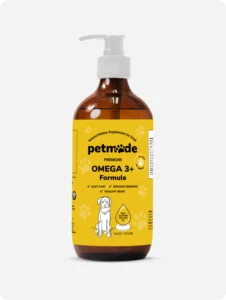How to Tell if Your Dog Has Heart Health Issues
Your furry friend brings boundless joy and energy to your life, making every day brighter with their wagging tail and loving presence. As we mark Heart Health Awareness Month, it’s the perfect time to focus on keeping our four-legged companions happy and active. Just like us, our dogs’ wellbeing depends on staying active and maintaining good habits.
This guide will help you spot early signs that your pup might need extra attention and provide practical tips to keep them bouncing with vitality. Being proactive about your dog’s wellness can make a big difference in their quality of life.
Signs to Watch For
Your dog communicates with you in many ways, and paying attention to their daily behaviors can tell you a lot about their wellbeing. Keep an eye out for these subtle changes in their routine to spot potential dog heart health issues:
1. Changes in Play Habits
Your first clue might come during playtime. Watch for signs like taking extra breaks during fetch or showing less interest in favorite games. While every dog has unique energy levels, notable changes from their usual patterns deserve attention.
2. Breathing Changes
Pay attention to your dog’s breathing during both rest and activity. Notice if they need longer to catch their breath after regular play sessions. During rest time, their breathing should be steady and relaxed without extra effort.
3. Different Sleep Patterns
Keep an eye on your pup’s rest habits. Look for changes like choosing new sleeping spots or shifting from their normal sleep schedule. You might notice them taking longer to get comfortable or avoiding their favorite sleeping position.
4. Shifts in Food and Water Habits
Watch your dog’s eating and drinking patterns. Take note if they start drinking more water than usual or lose interest in mealtime. Even small changes in their usual food routine can be worth noting.
Lifestyle Factors That Support Heart Health
There are a few factors that may help your furry friend have a stronger heart:
Establish a Daily Routine
Give your pup stability with a consistent daily schedule. Set regular times for meals, exercise, and rest periods throughout the day. This predictable routine helps your dog feel secure and makes it easier for you to spot any changes in their habits.
Keep Exercise Fun and Engaging
Transform exercise into playtime that you both enjoy. Try these activities:
- Hide-and-seek games with favorite toys
- Gentle training sessions that combine learning and movement
- Interactive play that keeps them moving without getting tired
- Short, fun walks with plenty of sniffing breaks
Create Comfort Zones at Home
Set up different resting spots around your home to keep your pup comfortable:
- Cool tile areas for warm days
- Cozy beds in quiet corners
- Soft blankets in their favorite spots
- Shaded areas for afternoon naps
Nutrition for Your Dog’s Wellbeing
Quality nutrition forms the foundation of your dog’s vitality and energy. When choosing food for your furry friend, look for options rich in natural nutrients that support overall wellness.
Lean proteins from sources like fish can provide essential omega-3 fatty acids that help maintain your pup’s active lifestyle. Foods containing natural sources of vitamin E, like certain vegetables and oils, can boost your dog’s energy levels.
Whole food ingredients play a key role in supporting your dog’s wellness. Sweet potatoes and pumpkin offer beneficial fiber and natural vitamins, while leafy greens contain important minerals.
Consider foods that include natural sources of potassium, such as green beans or carrots, which can help maintain your pup’s everyday activities.
PetMade Omega 3+ Formula offers a simple way to enhance your dog’s diet with wild-caught fish oil. The easy-to-serve liquid can be mixed right into their regular meals, making it perfect for picky eaters.
When to Contact a Pet Professional
While monitoring your dog’s daily habits is essential, certain changes signal it’s time to seek professional guidance. If your pup shows less interest in activities they usually love or tires quickly during regular walks, schedule a check-up.
Keep a simple log of changes you notice in your dog’s behavior. Note when they started and any patterns you spot. This information helps pet care professionals better assess your furry friend’s needs. Include details about exercise tolerance, eating habits, and rest patterns.
Regular wellness visits allow professionals to track your dog’s progress and catch potential issues early. These check-ups are opportunities to discuss any concerns and get tailored advice for your pup’s specific needs.
Keeping Your Best Friend Happy and Healthy
Taking care of your dog’s wellbeing doesn’t need to feel overwhelming. Small, consistent actions make a big difference in keeping them happy and active. Pay attention to their daily habits, maintain regular exercise, and create a supportive home environment.
By staying proactive about your dog’s wellness, you’re helping them enjoy life to the fullest. Start implementing these tips today, and watch your best friend thrive with vitality and joy.
Advertisement. This site offers health, wellness, fitness and nutritional information and is designed for educational purposes only. You should not rely on this information as a substitute for, nor does it replace, professional medical advice, diagnosis, or treatment. If you have any concerns or questions about your health, you should always consult with a physician or other health-care professional. Do not disregard, avoid or delay obtaining medical or health related advice from your health-care professional because of something you may have read on this site. The use of any information provided on this site is solely at your own risk.

















